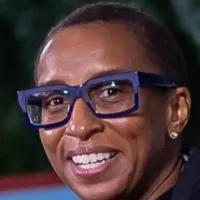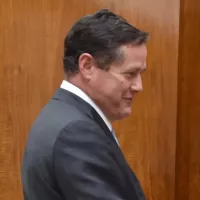Harvard University, located in Cambridge, Massachusetts, is a private Ivy League research university. Established in 1636, it is the oldest institution of higher learning in the United States. Renamed after its initial benefactor, John Harvard, a Puritan clergyman, it holds a prominent position globally due to its influence, substantial financial resources, and consistently high rankings. Harvard is considered one of the most prestigious universities worldwide.
1903: Franklin D. Roosevelt graduated from Harvard
In 1903, Franklin D. Roosevelt graduated from Harvard University (AB).
1910: First meeting between Harvard and Cornell in men's ice hockey
In 1910, Harvard and Cornell first met in men's ice hockey, establishing a historic rivalry.
1940: John F. Kennedy graduated from Harvard
In 1940, John F. Kennedy graduated from Harvard University (AB).
1973: Start of the NCAA Division I era
In 1973, the NCAA Division I era began.
1989: Harvard Crimson wins NCAA Men's Ice Hockey Championship
In 1989, the Harvard Crimson men's ice hockey team won the NCAA Division I championship.
1990: Harvard Crimson wins NCAA Women's Lacrosse Championship
In 1990, the Harvard Crimson women's lacrosse team won the NCAA Division I championship.
2003: Harvard Crimson wins NCAA Women's Rowing Championship
In 2003, the Harvard Crimson women's rowing team won the NCAA Division I championship.
2006: Harvard Crimson wins NCAA Men's Fencing Championship
In 2006, the Harvard Crimson men's fencing team won the NCAA Division I championship.
2010: Paul Sherman comments on Harvard's image in film
In 2010, film critic Paul Sherman stated that "In the grammar of film, Harvard has come to mean both tradition, and a certain amount of stuffiness."
2024: Harvard-Yale Football Rivalry
As of 2024, the annual Harvard and Yale football rivalry has been played 139 times, dating back to its first meeting in 1875.
2024: Harvard Crimson wins NCAA Men's Fencing Championship
In 2024, the Harvard Crimson men's fencing team won the NCAA Division I championship.
Mentioned in this timeline

John F Kennedy JFK was the th U S President...

Football is a family of team sports primarily involving kicking...

War is defined as an armed conflict involving the armed...
England a constituent country of the United Kingdom occupies roughly...

Claudine Gay is an American political scientist and academic administrator...
Trending
2 hours ago Iowa Schools Delay, Cancel Classes Due to Winter Storm and Snow Forecast

3 hours ago Trump Considers Iran Options: Targeted Attacks, Regime Change, Amidst Growing US Military Buildup.

3 hours ago Jes Staley's Connection to Epstein Files Examined Amidst Leon Black Revelations and Contradictory Testimony.
4 hours ago Del Taco exits Columbus, Phenix City; Georgia locations close permanently and abruptly

5 hours ago Kindergarten SOS: Staff Shortages, Child Hunger, and Parental Addiction Concerns Rise.
6 hours ago Derrick Jones Jr. scores season-high 22 points; Mathurin leads Clippers over Nuggets.
Popular

Jesse Jackson is an American civil rights activist politician and...
Randall Adam Fine is an American politician a Republican who...

Pam Bondi is an American attorney lobbyist and politician currently...

Bernie Sanders is a prominent American politician currently serving as...

Ken Paxton is an American politician and lawyer serving as...

Barack Obama the th U S President - was the...